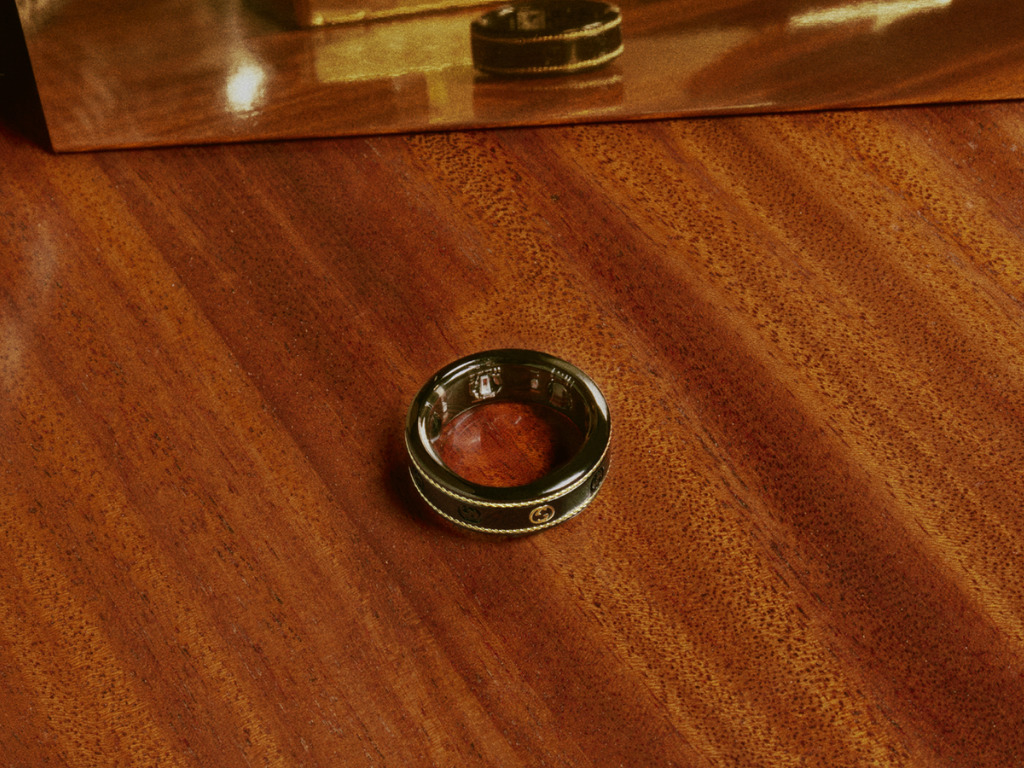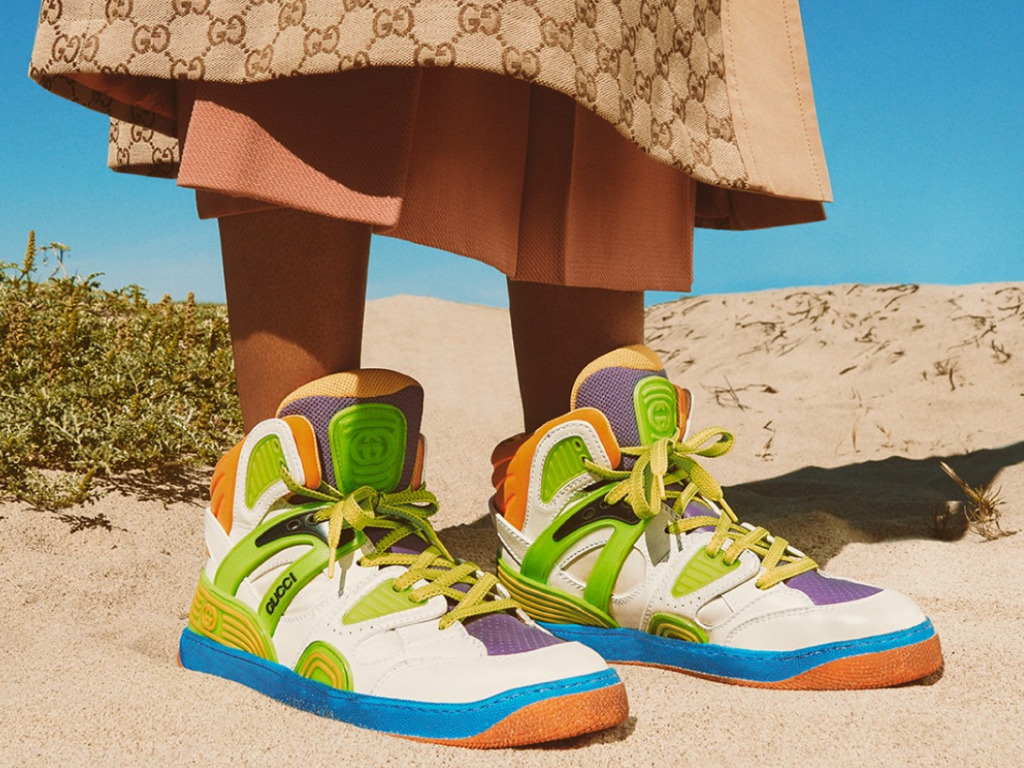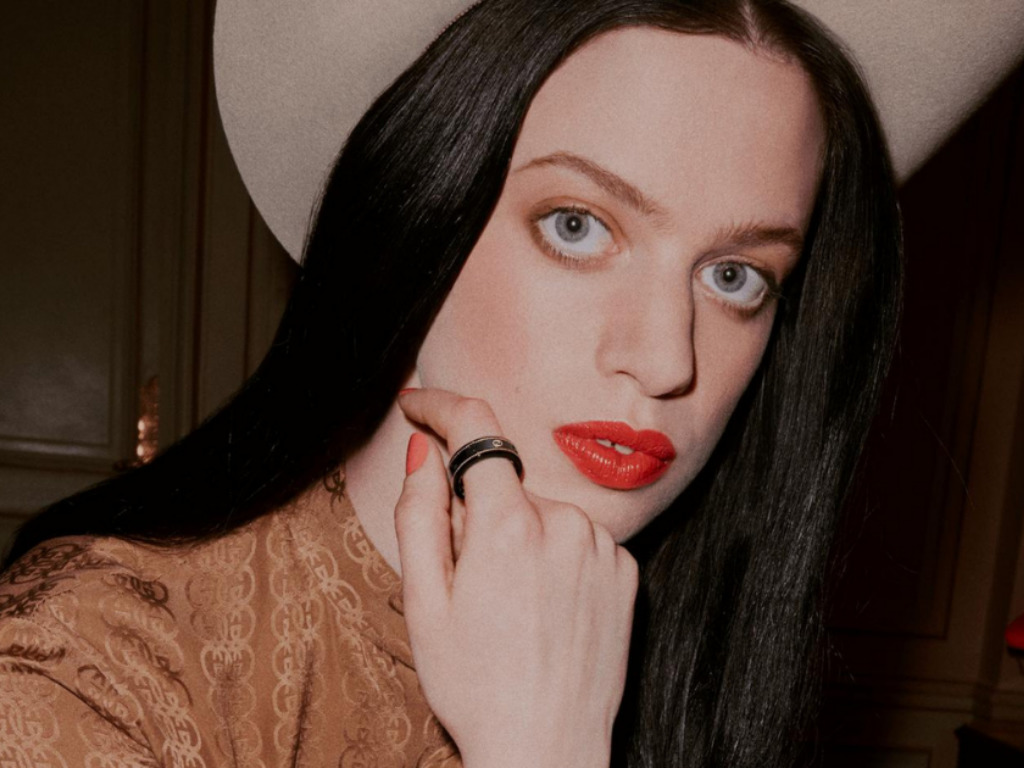4 Mins Read
Gucci has announced a collaboration with technology-infused jewellery brand Oura. The two have developed a Gucci branded Oura ring that functions as a fashion statement, fitness and sleep tracker. It marks an unusual move away from self-branded luxury goods for brands such as Gucci and highlights the gap in the market for high-end connectable wearables.
The move into tech jewellery isn’t quite the unexpected leap that it could have been for Gucci. As a global brand, it has been seeking to widen its audience and potential consumer base. Previous tech-enabled collaborations for the fashion house include metaverse presences via video games Roblox and Animal Crossing, NFTs and augmented reality sneakers.

Who is Gucci targeting with the Oura ring?
Millennials have previously been dubbed the ‘wellness generation’. With the group turning 40, they are more likely to have the disposable income to support a luxury shopping habit that taps into their obsession with personal health. However, it is Gen Z that Gucci appears to be taking aim at.
The most tech-savvy and motivated generation, Gen Z offers an untapped wealth of future consumers for legacy brands such as Gucci to appeal to. Plus, new data appears to suggest that the demographic is even more concerned with wellness than its predecessor.

What are Gen Z consumers looking for?
Like Millenials before them, Gen Z has been highlighted as a demographic that does not put price first. Cost efficiency plays second fiddle to issues such as ethical production, practical application and futureproofed technology. Gen Z is the first generation to have never known a time when computers didn’t exist or have a role to play in everyday life, making them the first digital native group. This is a critical element when looking at their consumption habits.
Fashion has been identified as dominating Gen Z spending. It is estimated that 75 percent of purchases fall into the category. Bringing together the digital native status of Gen Z shoppers with their love for aesthetics and fashion means that tech-savvy designers stand the best chance of resonating with the group. This is what Gucci is banking on with its Oura collaboration.
Forgetting fast fashion
Due to their age, Gen Z has been a prime target for fast fashion brands. Younger consumers typically have less access to disposable funds, but with digital progress has come the ability to make a living online, regardless of age. Ryan Kaji is only 10 years old but already has a successful YouTube channel that has led to merchandising and toys. Gen Z is capable of outearning the generations before, thanks to its natural ability to assimilate technology into all aspects of life.
Added to more income is a deeper perception of ethical business practices. In 2020 Nielsen revealed that 73 percent of Gen Z is willing to pay more for sustainable goods. If Genz Z identifies a product as having longevity, lasting value and serving a practical purpose, underscored with technology, it is likely to be popular.

The changing face of Gucci
Once an unapologetic brand from the golden age of fashion, Gucci has been taking various steps to reinvent itself for a younger consumer base.
First came the launch of vegan trainers, in 2019. The shoes were made from a proprietary blend of wood pulp and other materials that resulted in a 77 percent recycled leather alternative. Next came the carbon offsetting of its entire value chain, also in 2019. Accomplished through the planting of thousands of trees, Gucci became entirely carbon-neutral in a bid to step up to what it called “a new era of corporate accountability”.
In 2021, Gucci quietly partnered with TheRealReal, to enter the growing resale fashion market. This proved to be a valuable move, now that resale is becoming one of Gen Z’s preferred ways to shop. Getting in early shows Gucci as a proactive, not reactive brand.
Last September, its parent company, Kering, announced it would no longer be working with fur amidst concerns about animal welfare and sustainability. Gucci was the first to make the pledge to be fur-free, back in 2017.
All photos by Gucci.




